All content on this site is intended for healthcare professionals only. By acknowledging this message and accessing the information on this website you are confirming that you are a Healthcare Professional. If you are a patient or carer, please visit Know AML.
The aml Hub website uses a third-party service provided by Google that dynamically translates web content. Translations are machine generated, so may not be an exact or complete translation, and the aml Hub cannot guarantee the accuracy of translated content. The aml and its employees will not be liable for any direct, indirect, or consequential damages (even if foreseeable) resulting from use of the Google Translate feature. For further support with Google Translate, visit Google Translate Help.
The AML Hub is an independent medical education platform, sponsored by Daiichi Sankyo, Johnson & Johnson, Syndax, Thermo Fisher Scientific, Kura Oncology, AbbVie, and has been supported through an educational grant from the Hippocrate Conference Institute, an association of the Servier Group.
The funders are allowed no direct influence on our content. The levels of sponsorship listed are reflective of the amount of funding given. View funders.
Now you can support HCPs in making informed decisions for their patients
Your contribution helps us continuously deliver expertly curated content to HCPs worldwide. You will also have the opportunity to make a content suggestion for consideration and receive updates on the impact contributions are making to our content.
Find out more
Create an account and access these new features:
Bookmark content to read later
Select your specific areas of interest
View AML content recommended for you
Long-term efficacy and safety results from the phase III AGILE trial
Do you know... Which of the following statements is true about patients with MRD-negativity who received ivosidenib in the AGILE trial, at a median follow-up of 28.6 months?
At a median follow-up of 28.6 months, patients with newly diagnosed IDH1-mutated acute myeloid leukemia receiving ivosidenib plus azacitidine in the phase III AGILE trial had significantly longer overall survival and faster, more durable hematologic recovery. Ten out of 33 evaluable patients who received ivosidenib converted to measurable residual disease negativity. There was no overall relationship between measurable residual disease negativity and survival outcomes. However, patients with <1% variant allele frequency who were measurable residual disease negative had significantly longer overall and event-free survival and longer duration of response than those with ≥1% variant allele frequency. Ivosidenib maintained its previously reported safety profile.
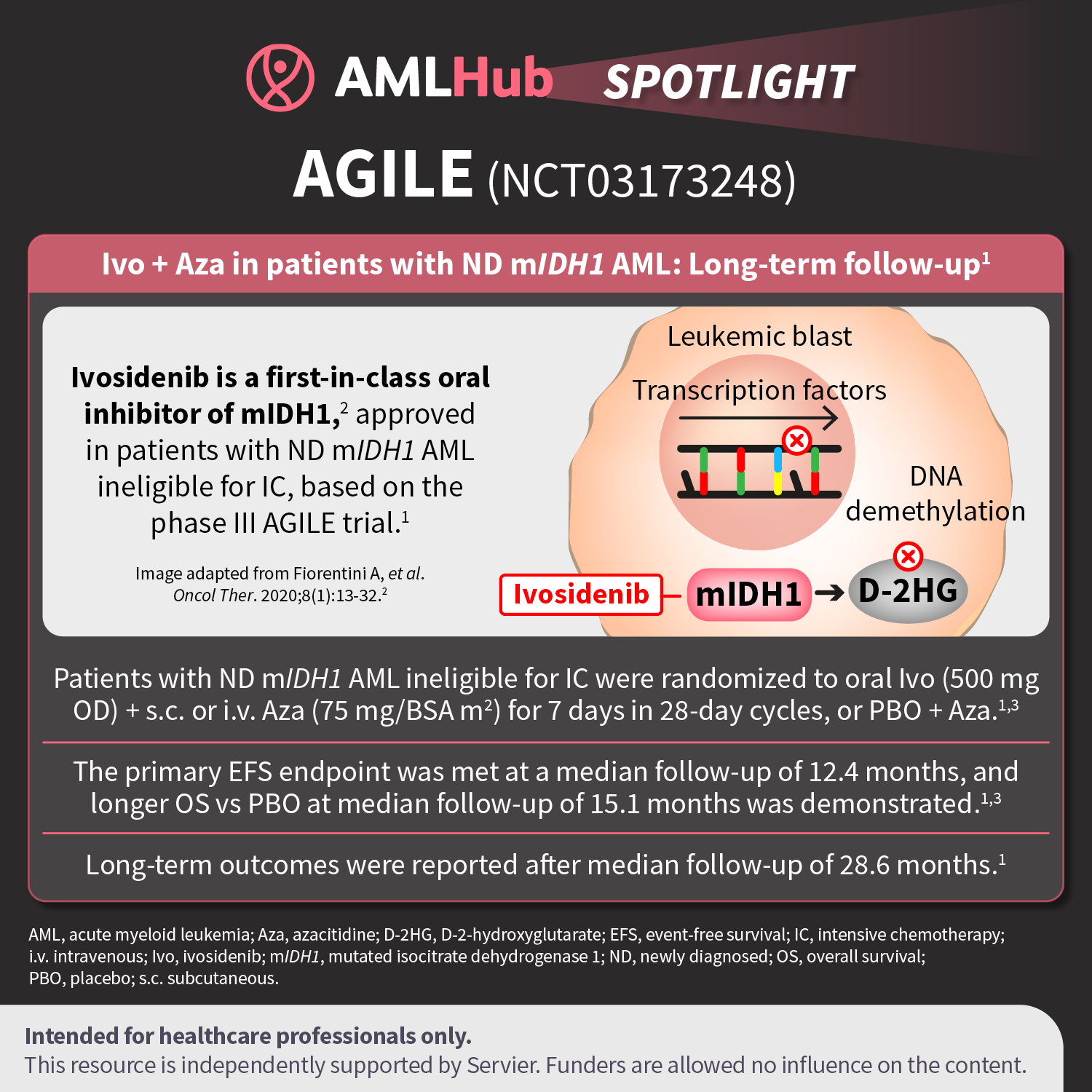
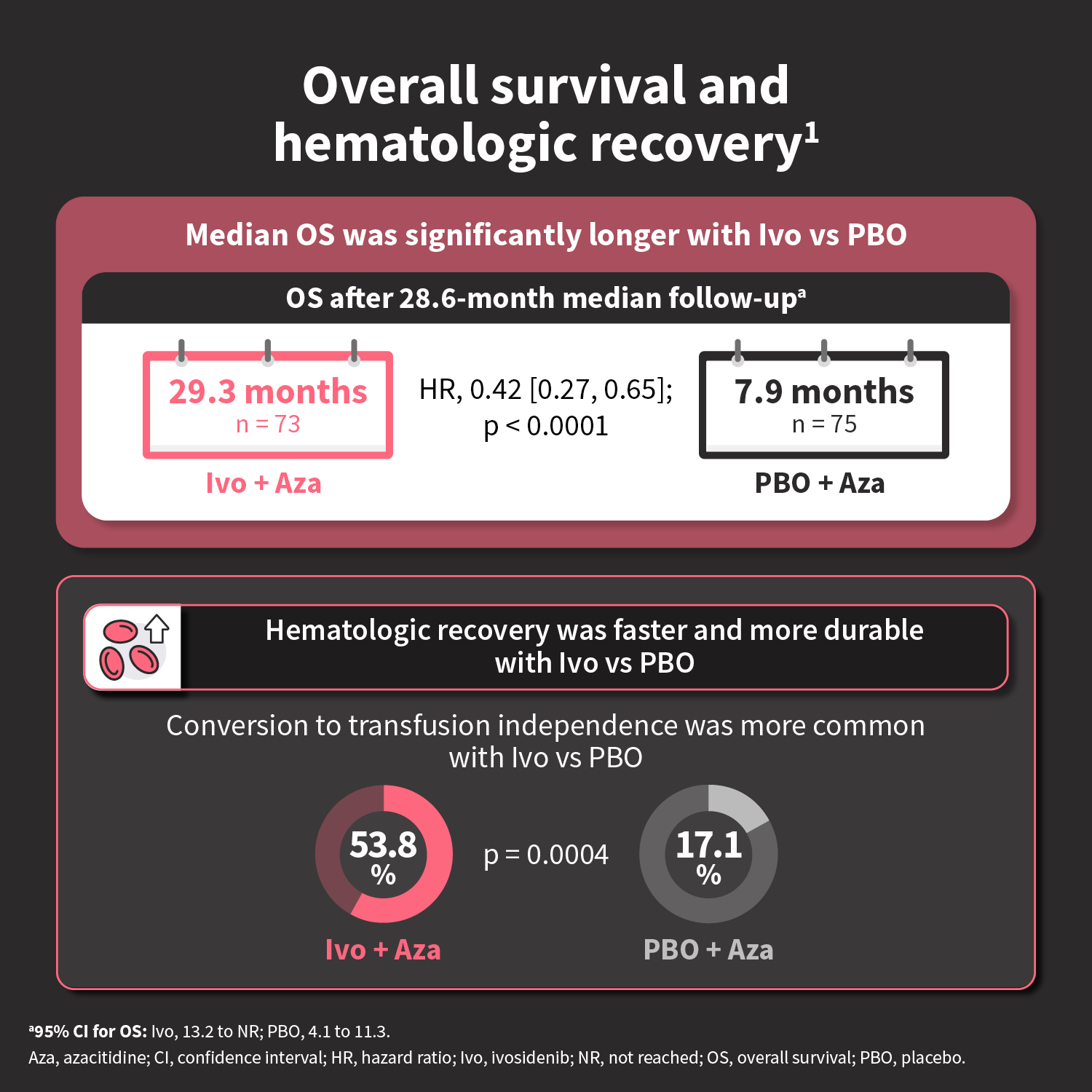
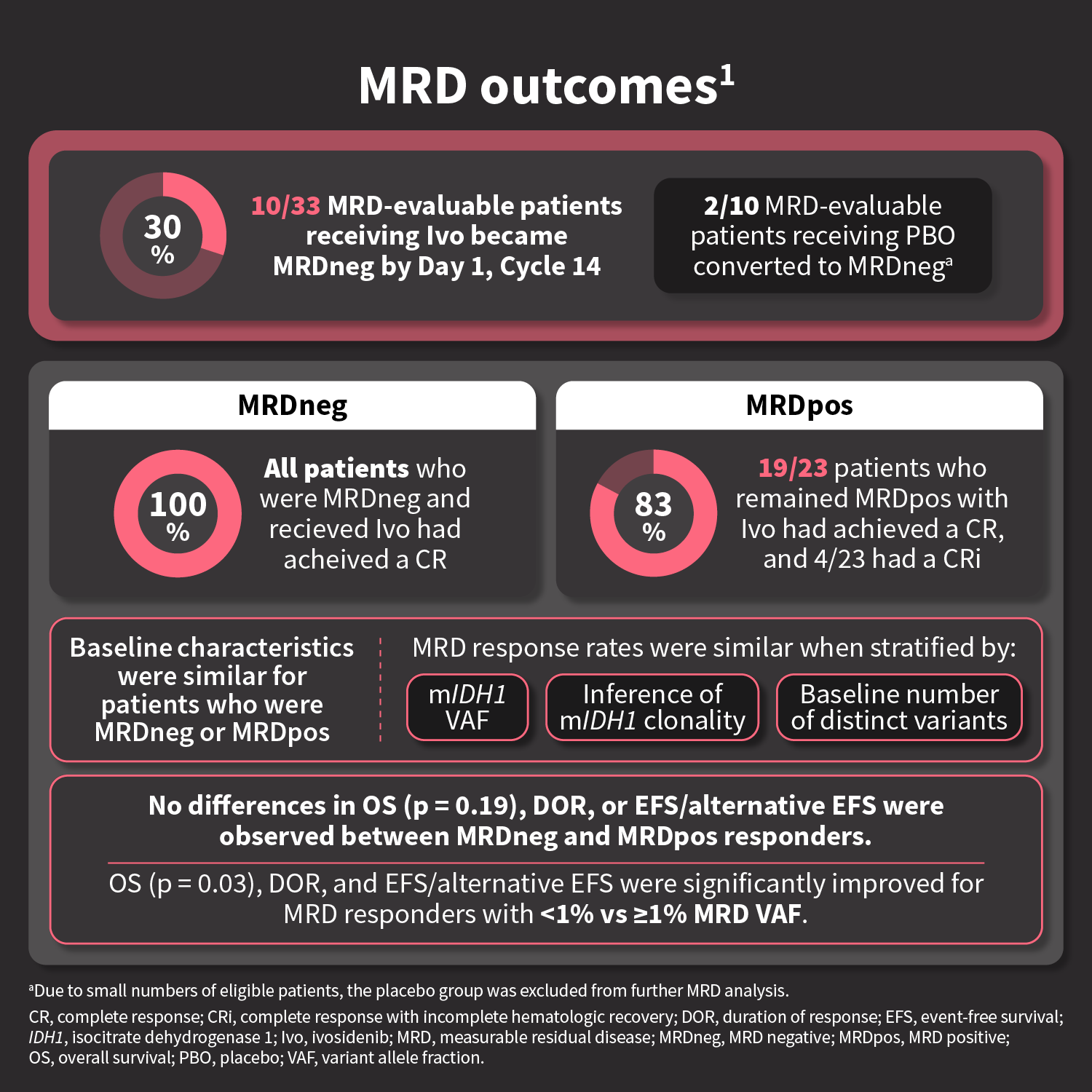
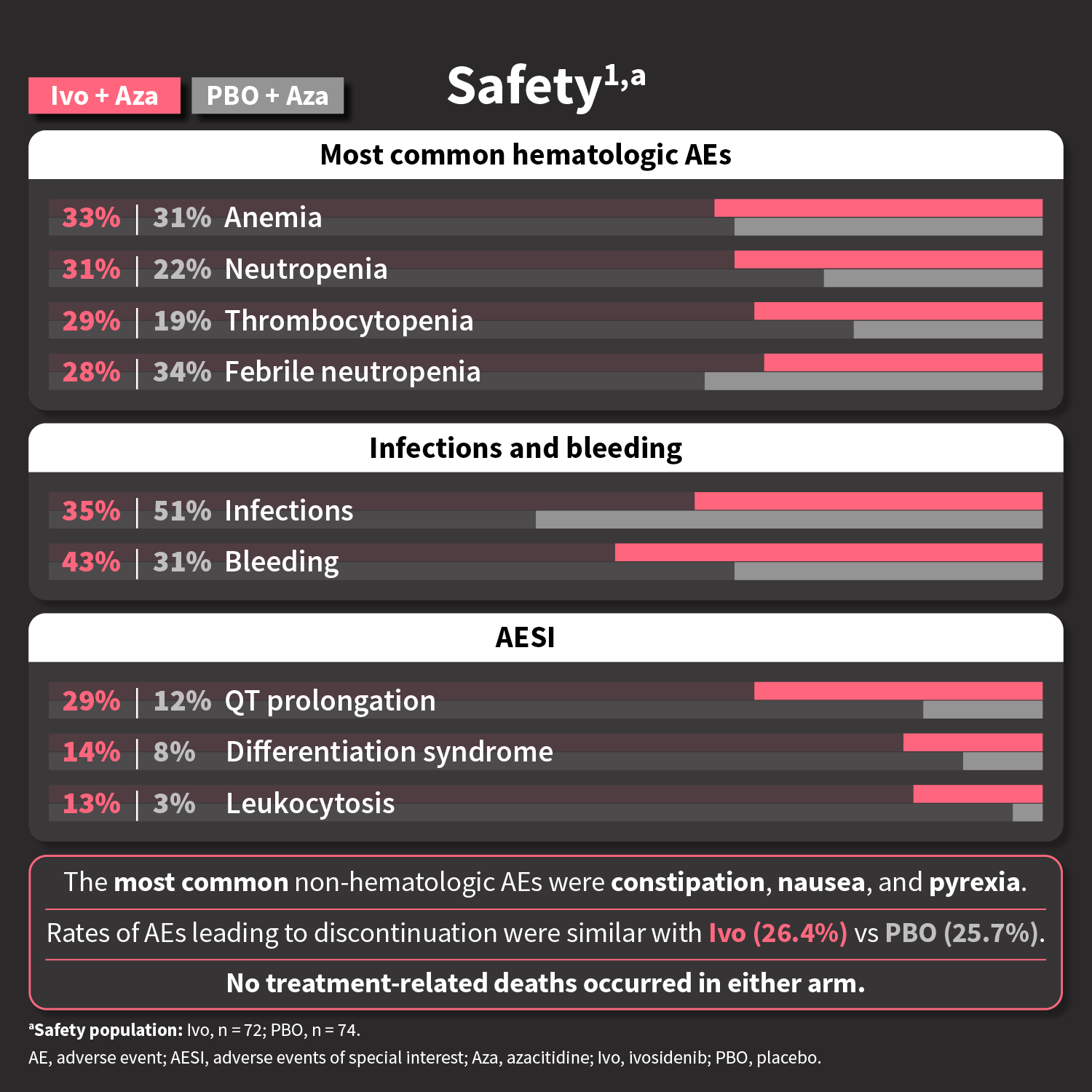
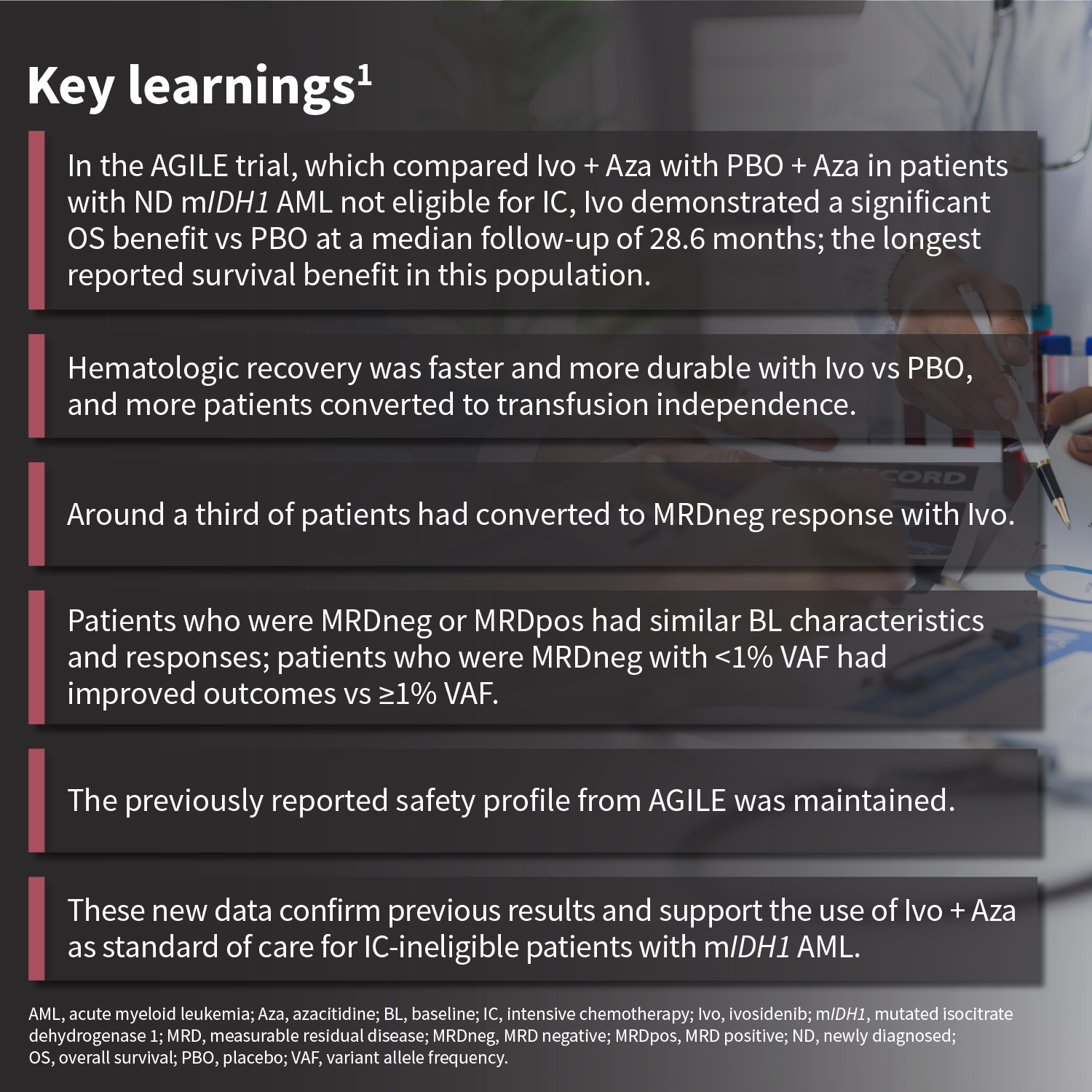
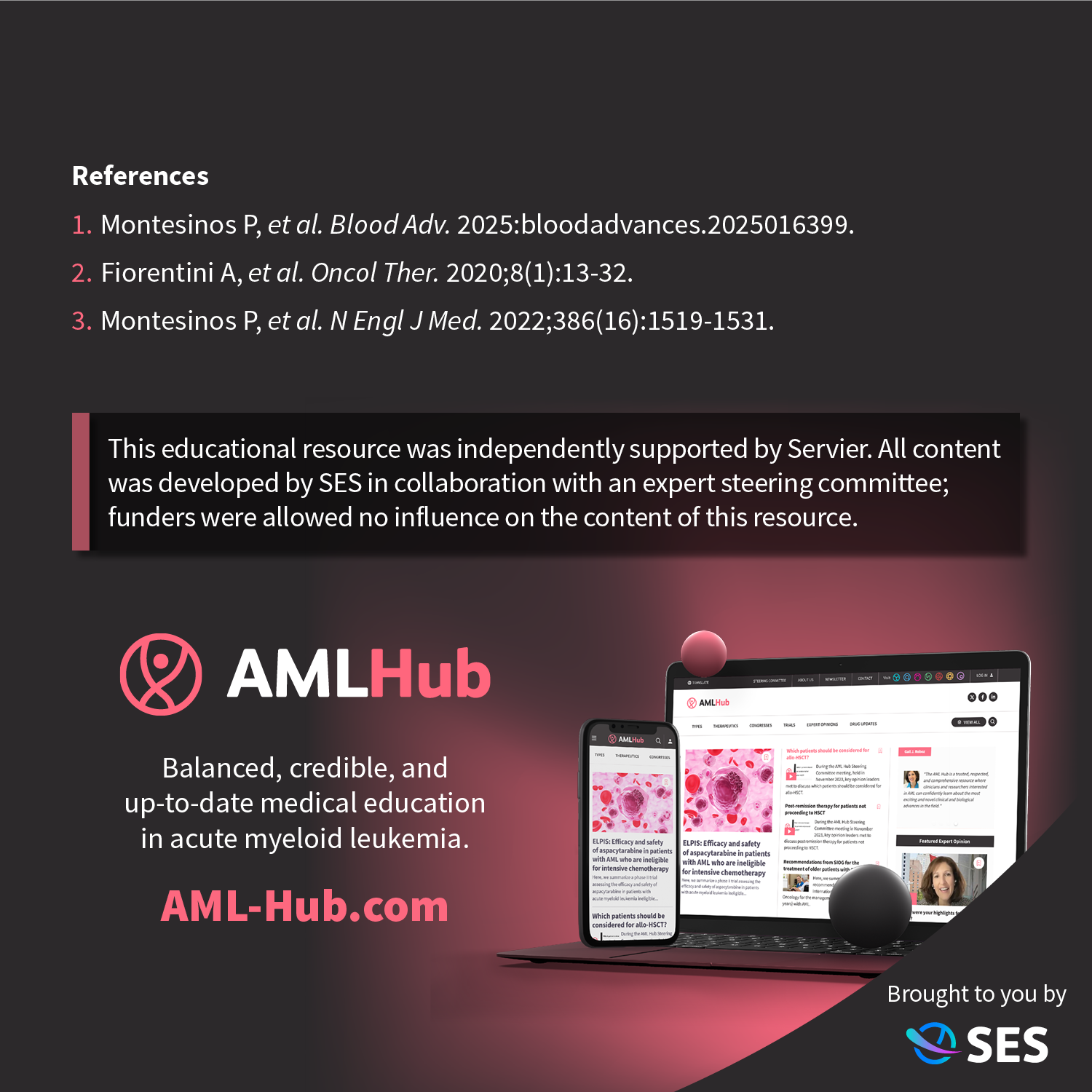
This educational resource was independently supported by Servier. All content was developed by SES in collaboration with an expert steering committee; funders were allowed no influence on the content of this resource.
Please indicate your level of agreement with the following statements:
The content was clear and easy to understand
The content addressed the learning objectives
The content was relevant to my practice
I will change my clinical practice as a result of this content
Your opinion matters
On average, how many patients with acute myeloid leukemia do you see in a month?





